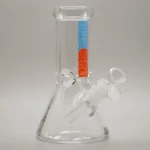Is Kratom legal? Seems like a simple question with a simple answer, right? Unfortunately it isn’t exactly so clear when it comes down to it. In the majority of the US, Kratom is fully legal, but a few states still have pending legislation, and several states have made it outright illegal.
Kratom is an effective herbal remedy for a litany of symptoms and ailments, making it popular with people from all walks of life. Although Kratom does have some recreational effects, the medicinal possibilities are really what makes this plant so versatile.
One of Kratom’s most important uses is for opiate withdrawal. Kratom acts as a safe, natural alternative to Methadone or Suboxone, by treating the symptoms of withdrawal. Kratom can soothe muscle and body aches, improve mood and attitude, regulate fever and even satisfy opiate cravings. After a week or two, when the physical addiction has subsided, users can stop using Kratom and go on to begin opiate free lives.
Strains of Kratom often used for pain are usually found in the Sunda Islands, more specifically Indonesia. Most Kratom strains found in this area have naturally developed a high alkaloid blend helping them to relieve pain, however, these strains can also be sedating. If you need pain relief without the risk of drowsiness, many Malaysian Kratom strains can be very effective for pain relief without sedation.
The keys to Kratom’s level of effectiveness, are alkaloids. These alkaloids bond with adrenoreceptors in our cells and send signals to the sympathetic nervous system. They affect heart rate, breath control, and generally bring the entire body into a more peaceful rhythm. In addition to physical effects, Kratom is also responsible for a sensation of emotional and mental calmness. Feelings of worry and stress give way to a highly relaxed and meditative state. One’s overall feeling of happiness and appreciation of life are enhanced, causing a gentle wave of relaxation, and inevitably, sleep.
Depression plagues 14.8 million Americans, nearly 7% of our population over 18. As of 2013, one in ten Americans were taking a prescription anti-depressant. Kratom’s natural abilities to make users feel better overall has peaked the interest of many sufferers of depression. According to Kratom Online, Kratom is useful in treating depression for several reasons:
With all these uses and relatively no risk, why then are some states making Kratom illegal? Much like marijuana, Kratom’s prohibition stems from misinformation and misunderstanding. According to Natural Product Insider:
“In fact, DEA recognizes no legitimate medical use for Kratom, which is in the same family tree as coffee and contains more than 25 alkaloids. DEA contends high doses of the substance can produce opiate effects and lead to addiction. The agency cited cases in which addicts exhibit psychotic symptoms, such as delusions and hallucinations. According to DEA, national drug abuse surveys have not monitored Kratom abuse in the United States.”
While Kratom can have some negative effects, these usually do not occur unless the user is taking 10-20x the recommended dose. As far as being addictive, Kratom does have a slight possibility for addiction in people that are predisposed to addictive behavior, but no more so than its coffee bean cousin. Overall Kratom is a natural alternative to traditional pharmaceuticals, and when taken properly, poses almost no risk to users.
Is Kratom legal in your state?





